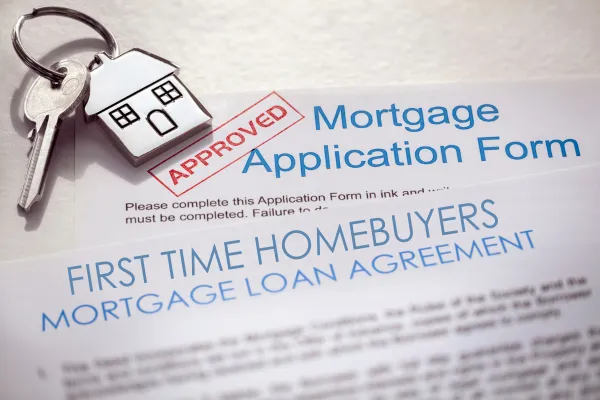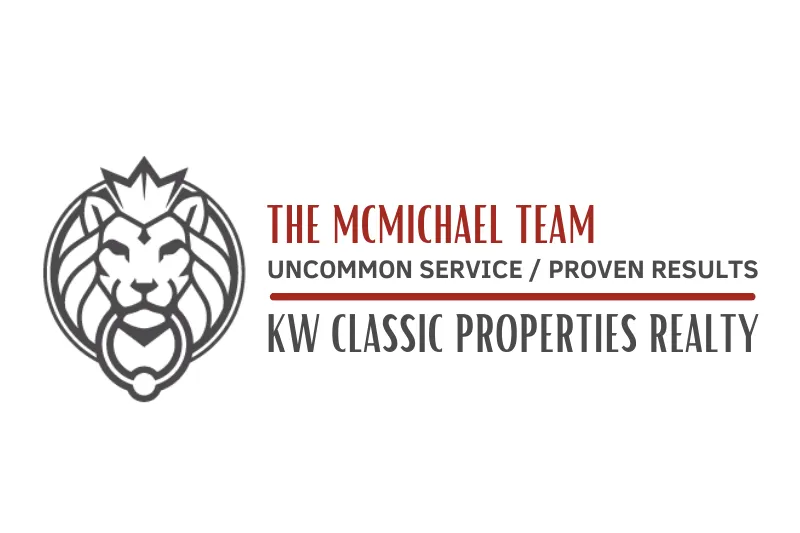Sell Your Columbus,Ohio Home Quickly With The McMichael-Liston Team
Join tons of highly satisfied homeowners who have worked with The McMicheal-Liston Team to sell their home quickly and for top dollar.
or call us at (614) 766-7766 today!
Are you ready to sell your house? Fill out this simple form or call (614) 769-7766.
Know Why You are Selling
If you know exactly why you are selling then it is easier for you to follow the right plan of action for getting what you want.
If you are a seller who needs to close a sale as quickly as possible, then you should know that getting the highest price possible is not one of your priorities. It does not mean that you won’t or cannot get the highest price, but it means that the price is not the deciding factor.
A buyer who can give you a quick closing time will appeal much more to you than a buyer who can offer you more money but the negotiation and closing time drag on.
It’s always good to know how low you will go, in terms of selling price. This will help to eliminate some of the offers that you find simply offensive or ridiculous. Even though you should consider all offers seriously and take into consideration the terms of each offer, sometimes, if you know the bottom line and are strict about it, you can save yourself time.
Once you know what your limits and reasons are, discuss them with your agent so that they can help you set your goals realistically. If you decide to list your home on your own, make sure you do research on the current market, and you get the proper advice you need in terms of legal issues, etc. The key is to be realistic and to know what your goals are so they can be met.
Plan of Action
- Analyze why you are selling – If you understand your motives, you will be able to better negotiate and to get what it is that you want, whether it be a quick sale, high price, or somewhere in the middle.
- Prepare your home for the buyer – Maximize the strengths of your property and fix up its weaknesses. You want the buyer to walk away from your home with a lasting good impression.
- Find a good real estate agent that understands your needs – Make sure that your agent is loyal to you, and can negotiate to help you achieve your goals. In addition, they should be assertive and honest with both you and the buyer.
- Be prepared for negotiation – Learn and understand your buyer’s situation; what are their motives? Can you demand a big deposit from them? Try to lock in the buyer so that the deal goes through.
- Negotiate for the best price and the best terms – Learn how to counter offer to get maximum value from every offer.
- Make sure the contract is accurate and complete – Be honest with your disclosures; you do not want to lose the deal because you were lying or diminishing your home’s defects. Insist the buyers get a professional inspection. This will protect both you and the buyer.
Finding the Right Agent
Not all agents work the same way. The most important attribute of an agent is that he/she is well connected to the real estate industry. He/she should know the market and provide information on past sales, current listings, his or her marketing plan, and at least 4 solid references. In addition, you also want to look for an agent that is honest, assertive, and one that best understands your needs.
Try to go with a local agent. They can better serve your needs because they should be more familiar with the local market conditions, local prices, and what’s hot or not in your community.
Considering Offers
When reading an offer, keep in mind that you are out to get the best price AND the best terms for you. If you focus solely on the price, you may overlook terms that could be favorable to you as a seller.
Some terms that may work in your favor:
higher-than-market-interest in a second mortgage for your home
the buyer will pay for most or all of the closing costs
the buyer will take care of any repairs
quick close – the buyer is pre-approved, ready to close in a timeframe that best suits you
all-cash deal
When reading through offers, remember to look at the whole package. Take the time that you need to assess what is being offered and if it meets your needs.
Setting the Price
The price is the first thing buyers notice about your property. If you set your price too high, then the chance of alienating buyers is higher. You want your house to be taken seriously, and the asking price reflects how serious you are about selling your home.
Several factors will contribute to your final decision. First, you should compare your house to others that are in the market. If you use an agent, he/she will provide you with a CMA (Comparative Market Analysis). The CMA will reflect the following:
houses in your price range and area that were sold within the last half-year
asking and selling prices of houses
current inventory of houses on the market
features of each house on the market
For Sale By Owner – A Good Idea?
FSBO (pronounced fizz-bo), or For Sale By Owner, is a way of selling your home without the use of a professional real estate agent or broker. The idea behind FSBO is that by selling your home yourself, you save the approximate 6% that would be the agents’ commission.
6% may not sound like a lot, but it can add up, especially on more expensive homes. But before you run off and decide to sell your home FSBO, you must remember that to get savings like that, there must be a cost. So what’s the catch? Selling FSBO is hard. A lot harder.
Only about 10% of sellers that decide to do FSBO are successful at it. And not all of them end up saving themselves money. FSBO sellers often end up accepting a lower price for their home than they would with an agent.
There are of course other issues as well. Can you afford to make selling your home your full-time job? Because for a lot of FSBO sellers, that’s exactly what it is. Do you have the time and capital to spend on the marketing, advertising, inspections, paperwork, phone calls, showings, and problems that come up when any home is sold?
Selling with a professional agent also has other advantages. An agent can get your home listed on the MLS (Multiple Listing Service) and other popular websites where not only homebuyers but also other agents can easily find it. Professional real estate agents also have an extensive network that allows them to more easily find a buyer.
So before you decide to sell your home yourself, thoughtfully consider just how much time and effort you can spare for selling your home, as well as how important it is that your home sell sooner rather than later.
Recent Posts

Understanding the Process of Obtaining a Mortgage for First-Time Homebuyers
“Once you're a homeowner, your house will probably be the biggest, long-term investment you have. Every dollar you spend on a mortgage or down payment is like putting money in a house-sized piggy bank, so it makes sense to look at home buying through the lens of saving.” - Rachel Cruze
Introduction:
Purchasing your first home is a dream many aspire to fulfill and obtaining a home loan can help turn that dream into a reality. If you're a first time homebuyer the process can seem daunting. This article aims to provide you with insights into home loans and offer tips to simplify the process.

Careful planning and research are key to a successful homebuying experience.
The Importance of Home Loans
Affording Your Ideal Home
A home loan is essentially a loan designed for purchasing a house. It enables you to acquire the home you desire even if you haven't saved up all the funds required. Instead of paying for the property upfront, you make monthly payments that make owning your dream home more manageable.
Home Loans versus Renting
When you rent a property you pay rent but yon't have ownership rights. However, with a home loan, your monthly payments contribute towards building equity in an asset that will eventually be yours. It's akin, to saving money for ownership.
Varieties of Home Loans
Fixed-Rate Mortgages
Fixed-rate mortgages provide stability and predictability. Your interest rate remains constant throughout the loan term, simplifying your financial planning. This is an ideal choice for those who want to avoid surprises in their monthly mortgage payments.
Adjustable-Rate Mortgages
There are also mortgages known as adjustable rate mortgages (ARMs) where the interest rates can vary over time. Although they may initially start at a lower rate there is a possibility for them to increase making them more suitable for individuals comfortable with taking on some level of risk or those planning to live in their homes for a shorter duration.
Government-Backed Mortgages
Loans backed by the government, such as FHA, VA and USDA loans, aim to assist groups of people like first-time home buyers who may have limited funds for a down payment or lower credit scores.
Assessing Your Financial Readiness
Credit Score and History
Before applying for a mortgage it is crucial to consider your credit score and history since lenders evaluate these factors when determining your eligibility. Checking your credit report beforehand is essential. A higher credit score can enhance your chances of obtaining a more favorable mortgage offer.
Down Payment and Closing Costs
When purchasing a home you will need funds in the form of a down payment and closing costs. While 20% down payment is ideal, many mortgage programs allow for much lower down payments. The down payment serves as a deposit demonstrating your commitment to the lender to buying the property. Closing costs encompass fees associated with services such as appraisal fees, title insurance and attorney fees involved in completing the transaction. Make sure you're prepared for the expenses that come with buying a home.
Debt-to-Income Ratio
Lenders also take into account your income and existing debts when assessing your ability to handle mortgage payments. A lower ratio of debt-to-income demonstrates financial stability and enhances your mortgage approval prospects. It's advisable to pay off any debts before applying.
Steps to Take Before Applying
Saving for a Down Payment
It's wise to start saving for a down payment as early as possible. The more you can contribute upfront the less you'll need to borrow, resulting in lower payments.
Reducing Existing Debts
Clearing debts like credit card balances and car loans can improve your financial situation and make it easier for you to secure a mortgage.
Building Strong Credit
Making on-time payments and avoiding opening new credit accounts before applying for a mortgage can positively impact your credit score.
Obtaining Pre-Approval
Understanding Pre-Approval
Before embarking on your home search it's beneficial to obtain pre-approval for a mortgage. This involves a lender reviewing your financial information and providing you conditional commitment for a specific loan amount they're willing to offer. Pre-approval not only demonstrates you are a serious buyer, It also helps establish your budget for your home search.
Advantages of Pre-Approval
Being pre-approved provides several benefits. Knowing what you can afford is crucial as it simplifies the buying process and demonstrates your commitment to the sellers. Additionally it allows you to lock in a favorable interest rate, protecting you from potential rate hikes.
Finding the Right Lender
Researching Lenders
When searching for a lender, take your time to research lenders. Read reviews, compare interest rates. and look for a lender with a reputation for great customer service. Your real estate agent and friends can give you recommendations.
Comparing Loan Offers
Request loan estimates from different lenders. These estimates provide information about your mortgage, including interest rates, closing costs, and monthly payments. Comparing these offers will help you make an informed decision.
The Application Process
Gathering Necessary Documents
Before applying for a mortgage gather documents such as pay stubs, tax returns, bank statements and proof of employment. Having these documents ready in advance will make the application process smoother.
Completing the Application
Work closely with your chosen lender to ensure that you accurately fill out the mortgage application form. Be prepared to provide additional documentation or information if required during the underwriting process.
Underwriting and Approval
The Role of the Underwriter
The underwriter plays a crucial role in reviewing and evaluating your mortgage application to ensure it meets all of the lender's requirements. They may request further information during this stage or seek clarification on specific financial aspects.
Potential Approval Conditions
It is not uncommon for approval to come with conditions attached. For example, additional proof of income may be required. Fulfilling these conditions is essential to secure final approval for your mortgage.
Understanding the Impact of Interest Rates
How Interest Rates Affect Your Mortgage
Interest rates can be seen as the expense associated with borrowing money. Lower rates translate to lower overall costs, while higher rates result in increased expenses. Grasping the dynamics of interest rates is essential for making informed decisions about your mortgage.
Factors Influencing Interest Rates
Interest rates can fluctuate due to factors such as economic conditions, inflation rates, and government policies. Being mindful of these factors allows you to anticipate changes in interest rates and plan accordingly.
Loan Closing Process
Finalizing the Mortgage
The closing marks the completion of your mortgage journey, as ownership of the property is transferred to you. During this stage, you will need to sign various documents, including a loan repayment agreement (the promissory note) and a deed of trust.
Closing Costs and Documentation
Prepare yourself for closing costs, which encompass fees related to services like title searches, appraisals, and attorney fees. Carefully review all closing documents for accuracy and clarity before affixing your signature.
Responsibilities as a Homeowner
Monthly Mortgage Payments
Once you become a homeowner it becomes crucial to make your monthly mortgage payments on time. These payments cover both the loan amount and interest charges for the loan and help you contribute to the growth of equity in your home.
Property Taxes and Insurance
In addition to mortgage payments, you will also be responsible for paying property taxes and homeowners insurance. Make sure you allocate money for these expenses so that you won't be caught off guard.
Avoiding Common Mistakes When Getting a Mortgage
Sticking to Your Budget
It's important not to purchase a home that stretches your budget too thin. Stick with a budget that allows you to comfortably cover your mortgage payments and other expenses.
Getting a Thorough Home Inspection
Before making the purchase it's crucial to have a home inspection done. Skipping this step could result in unexpected and costly repairs down the line. You want to avoid these types of financial hardships.
Conclusion
Purchasing your home is a significant milestone. By understanding mortgages, organizing your finances, and making informed decisions you can confidently work towards achieving your dream of homeownership. Your ideal home is closer than you think.
FAQs (Frequently Asked Questions)
What credit score do I need to qualify for a mortgage?
While the minimum credit score varies, a score of around 620 is typically required. A higher credit score often leads to more favorable loan terms.Is it better to get pre-approved before house hunting?
Yes, obtaining pre-approval is recommended before beginning your home search. It provides a clear understanding of your budget, streamlines the buying process, and makes your offers more appealing to sellers.What's the difference between a fixed-rate and adjustable-rate mortgage?
A fixed-rate mortgage maintains a constant interest rate throughout the loan term, while an adjustable-rate mortgage (ARM) features a variable rate that can change over time.What are the typical closing costs for a first-time homebuyer?
Closing costs for first-time buyers usually range from 2% to 5% of the home's purchase price. These costs encompass various services, including appraisals and title searches.How can I avoid common mortgage pitfalls?
To steer clear of common mortgage mistakes, adhere to your budget, conduct thorough inspections, and seek professional advice when needed. Careful planning and research are key to a successful homebuying experience.
Getting the Highest Price in the Shortest Time
In order to get the highest price in the shortest time, you need to know how to market your home. The better you market your home, the more offers you will get. And the more offers you get, the more choices you have to get the price and terms you want.
The most important factor of marketing your home is pricing it right. Your price should be adjusted to reflect the market and your property’s worth. The key is to get as many people as possible checking out your fairly priced property. If your property is not priced fairly, there will be no buyers because your price is set too high.
Another important factor is the condition of your home. Make sure that your home looks ready to be sold. Fix any defects (peeling or faded paint, cracks, stains, etc.) Condition alone can sometimes prompt fast buying decisions. Not only should you fix any defects, but consider upgrading your home by making major repairs and cosmetic improvements before selling. A nice looking home triggers the emotional response that can lead to a financial response.
Learn how to negotiate the best terms for all parties involved. Terms are another factor that may be adjusted to attract buyers. If you insist on getting your asking price, think of what you can offer to the buyers. For example, improvements you’ve made or even offering seller financing at a lower than market interest rate on a portion of the sale price. Convince them why they should be paying the price you have set.
Lastly, get the buzz out about your home. List your house with a hot agent that ensures your house is listed on the MLS and on the Internet. On your own, get the word out. It should always be visible to passersby that your house is for sale, whether it is through signs, local advertisements or you telling friends, family, and acquaintances.

1349 W. Lane Ave, Suite 1125, Columbus, OH, 43221
(614) 769-7766
(614) 768-6531
www.livingincolumbus.com





